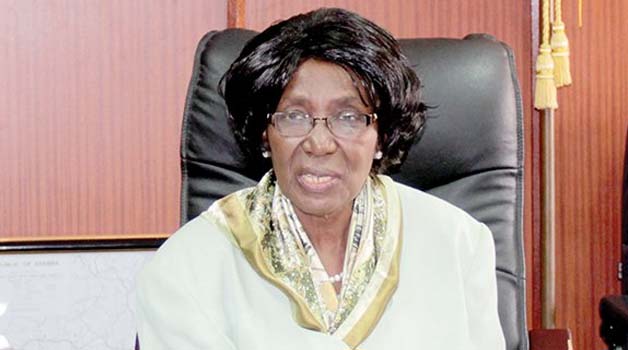By MILDRED KATONGO –
VICE-PRESIDENT Inonge Wina has called on Africans living in the Diaspora to invest back in their respective home countries and be part of transforming Africa.
Ms Wina said Africa needed to address pertinent issues like infrastructure, human capital development and good governance to influence its strengths and benefit from its engagement with the rest of the world and unlock its latent potential.
Officiating at the Third Annual Africa Summit where she was invited by the London School of Economics (LSE) to deliver a keynote opening address under the theme ‘Africa within a global context: Thinking beyond investments’, Ms Wina said Africans in the Diaspora should make a difference and invest in Africa.
This is contained in a statement released by first secretary – Press and public relations at the Zambian High Commission in the United Kingdom (UK), Abigail Chaponda.
“I must use this forum to call upon our brothers and sisters in the Diaspora to invest back in their respective home countries and be part of the transformation.
“Evidence has shown that in some countries, remittances from the Diaspora far exceed aid received, and that shows you the strength that lies within us as a people. It is home-grown investments by Africans across the African borders such as the Dangote Group that will bring sustainable socio-economic development,” Ms Wina said.
She said said Africans should start looking inwardly for home-grown investment solutions to support diversification of its economies and move away from dependence on one or two commodities exported as raw materials, especially in the face of volatility in commodity prices.
The Vice-President said African governments were committed to providing an enabling environment and mutual benefit for the investors and local people to invest.
She said Africa continued to face the challenge of inadequate infrastructure to support economic and social development initiatives.
Ms Wina said a lack of proper infrastructure added to the cost of doing business in Africa and made African products compete poorly on the global market.
She said there was need for concerted efforts to mobilise resources for pan-African and regional infrastructure projects on the continent.
“In order to enhance the competitiveness of African products, there is need to reduce the cost of doing business which is relatively high compared to the developed world due to a number of factors such as bureaucratic licensing and regulatory formalities, poor infrastructure and logistics and high cost of Information Communication Technology. There is also need to address issues of non-tariff barriers and market restrictions that African exports are subjected to,” Ms Wina said.







